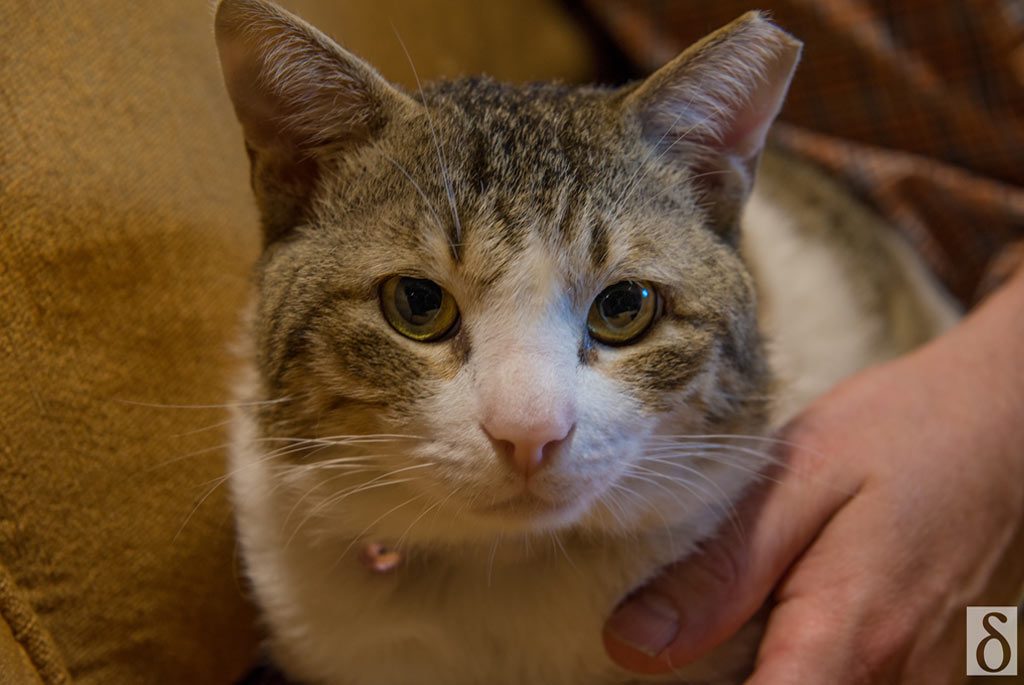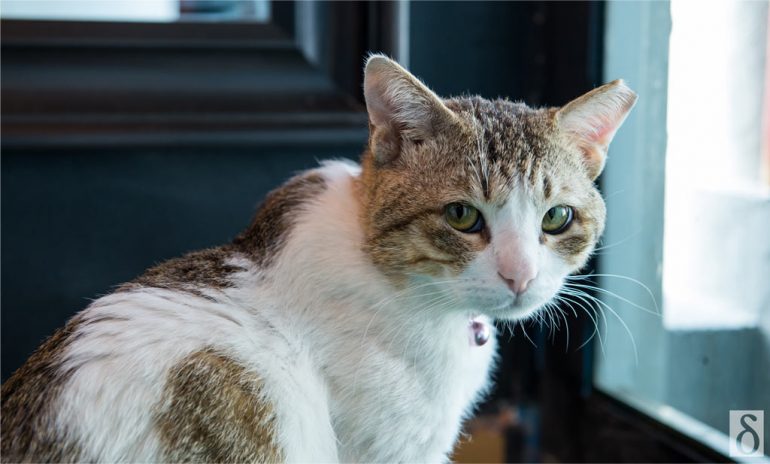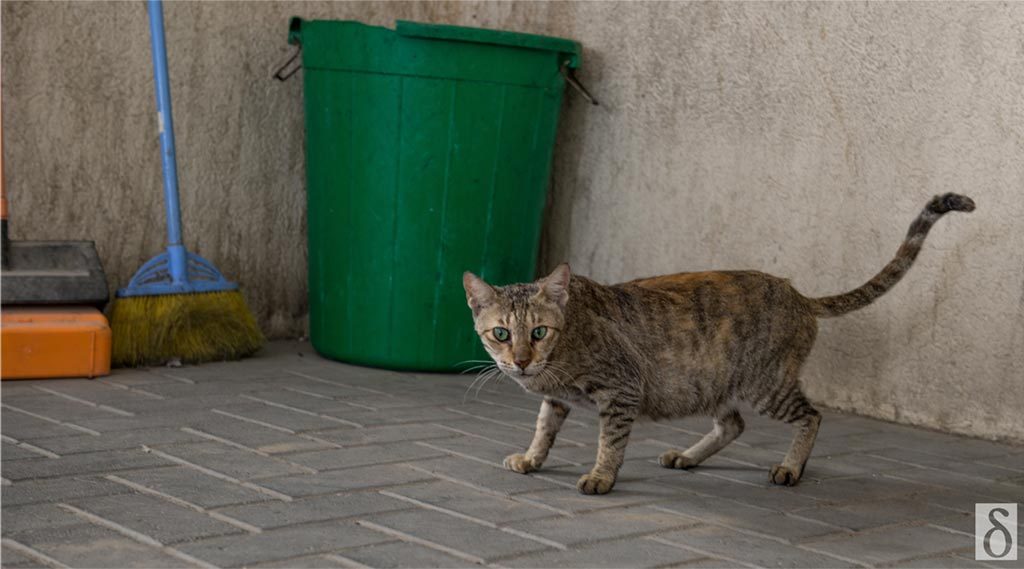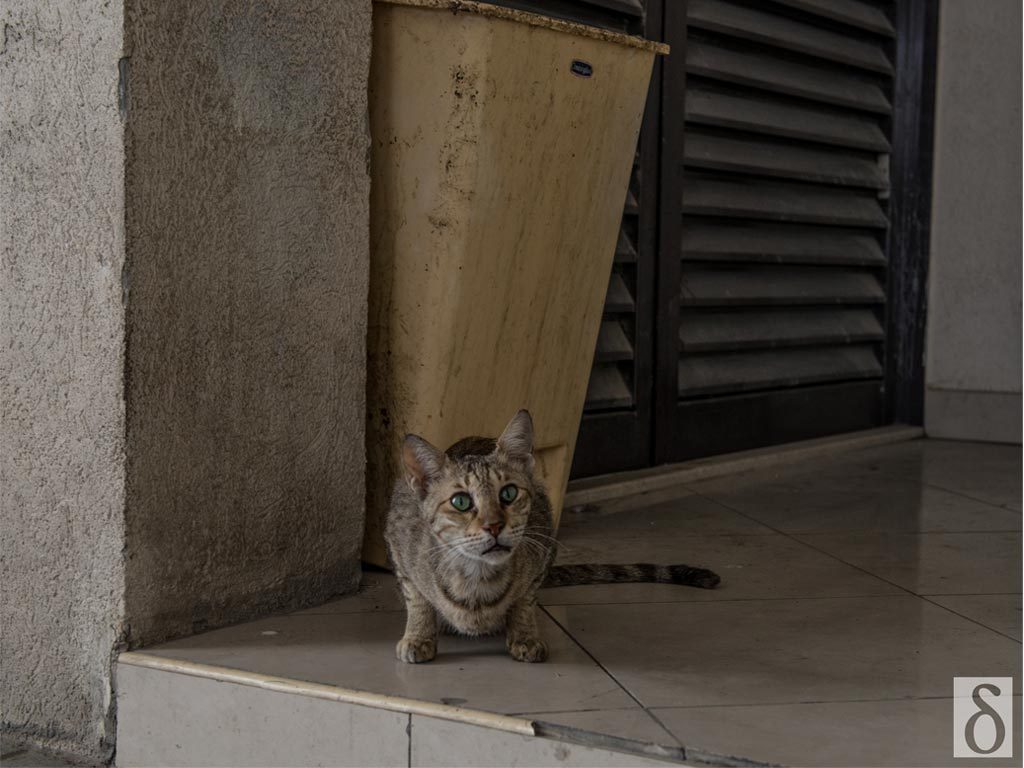Words & Research: Bhoomika Ghaghada, Kavya Narayanan & Sushmita Pathak
Photo Credits: Anete Thomas & Tarun Shyam
Why you should care:
I’ve found cats that had been in car engines with half their backs taken off. I have one in the cattery now and it’s probably going take months to even try and close the hole up.
Laura Glanfield, Owner of Posh Paws
You find them softly grazing your leg at outdoor cafes, napping under the hood of your car, or fiercely rummaging through your neighbourhood bin.
Whether you live in Deira, Jumeirah or DIP, stray cats are a familiar sight in Dubai. There’s one around every corner; in 2012, the cat population in Dubai was estimated at a quarter of a million, which in all likeliness has grown considerably since.
While cats rule the internet and have taken over YouTube, strays are neglected. In reality, they get sick, are mistreated, and quite often, starving. They get into fights because of lack of food and catch parasites/viruses with little to no medical care – all when we aren’t watching them chase a laser pointer.
In response to the worrying surge in roadkill in 2015 in the UAE, growing pet abandonment, and residents’ complaints about feral cats being dangerous disease carriers, the number of Trap-Neuter-Release (TNR) initiatives have seen considerable growth here. Yet, the problem of strays persists.
Gaelin Gray from Bin Kitty explains:
“To date, the policy has been to trap stray cats and remove them. This, however, doesn’t solve the problem because it simply creates a vacuum and, within months, cats from other areas move in and replace them.
It is universally-recognized that the most effective way to reduce the number of strays is sterilization. Neutering stray cats is proven to reduce the population by about a quarter after just a couple of generations.”
It’s not all bad – Many residents argue that cats make up an important element of the ecological balance of their neighbourhood by keeping the rat population in check. Todd Carson, Managing Partner at DKC, remarked that the problems of strays plagues the most developed countries in the world:
There’s never going to be enough resources to sustain the lives of stray cats here or anywhere else, even first world countries.
Even though there have been numerous geography-specific animal welfare initiatives since before 2008, why are we still encountering a breeding problem with strays?
We asked the same question.
Mahin Bahrami, an ardent animal lover who started the UAE’s first licensed TNR initiative, suggests that the problem is layered.
Pet Sales
Mahin and her team are going to one of the sources: pet shops. Mahin believes that by bringing them under one umbrella, the sale of pets can be closely monitored, while shop owners can continue to run their businesses.
The other side of the same transaction?
Irresponsible pet owners
Disturbed by growing cases of abandonment, Mahin explained
“It’s partly about the disposable mentality that persists here. When you decide to buy a pet, you have to be a 100% sure. There are serious considerations: Do you have a secure job? Do you know where to take it if it gets sick? Do you know about cat care? It’s like starting a family.”
One of the biggest trends, due to UAE’s transient nature, is when expats move back home, they leave their furry friends behind – especially in the heat of the summer.
Todd sheds light on how much transferring a pet can cost:
Whenever the economy is slow, he is reminded of stories of expats who had to leave behind everything they own – their bank accounts, cars and homes, with their pet’s relocation being far less of a priority.
So, we say, before bringing in a pet, ensure you have the willingness and funds to let it fly home with you – or make other arrangements for it when you leave.
Street Kitties
Abandoned pets are one thing, but strays that have been born on the streets? They are a different matter and come with their own unique challenges. Laura Glanfield, owner of Posh Paws suggests TNR:
“Neuter the cats and put them back on the street. There’s no home. Some organizations like Feline Friends and Bin Kitty do the neutering for AED 150-200. As for the kittens, try and make them as friendly as you can. Otherwise, they’ll be wild and you can’t tame/home them.”
The consensus is that TNR may be the closest thing to a solution. Rana Mohamed, Animal Handler at DKC, is of the opinion that stray animals, while victims, are unpredictable and take far longer to regain social traits, which makes them less than ideal candidates for rehoming.
They’re almost always feral, born in the streets and happy on the streets.
adds Todd.
Why not just put them in shelters, right? It’s not that simple.
They’re people too
Rana expresses the difficulties that NPOs face with space, funds and a healthy environment for cats:
Cats are just as easily traumatized by abandonment or sudden changes they’re unprepared for as people are. [Most shelters] hardly allow interaction with people. There’s only so much that nonprofits can do till they’re overwhelmed.
Running the Posh Paws Shelter and Petting Sanctuary, Laura is well acquainted with these hardships:
“It’s hard. In the vet clinic, I currently have one kitten that came from a building site with cat flu and a puppy that somebody had bought from a street market in Sharjah with possible distemper. Money for the vet, neutering, food. We have to try and run it as a business, because if we don’t, we’ll be bankrupt.”

While it may not be possible to say goodbye to stray cats in the short-run, we can change their treatment and bring the numbers under control:
1. When you see a stray in the neighbourhood, call a TNR group.
2. If you catch wind of animal hoarders and breeders or suspect mistreatment, report it to the authorities immediately.
Addressing the issue of pet abandonment and mistreatment, Gaelin from Bin Kitty Collective added:
Federal Law No. 16 protects the rights of animals in the UAE, with mistreatment of animals incurring a one year imprisonment and Dh20,000 fine. Animal welfare groups would like to see this law strictly implemented. We urge anyone who suspects any kind of mistreatment of an animal, to contact the Dubai Municipality on 800900.
3. Ensure that you only bring a pet into the house if your are ready to make a commitment.
Gaelin explains:
“Firstly, we confirm that all household members are in agreement over the addition of a new cat. This helps to ensure that there are no situations with unhappy spouses or in-laws, resulting in the return of a cat. We also question potential adopters about any allergies that people in the household may have.
Our other consideration is pregnancy. We have seen many cats unnecessarily re-homed because of a pregnancy in the family. Relocation is also a huge consideration, and we do expect families to relocate with the pets when the time comes. We also consider what other pets already live in the household, and whether there are any young children.
We try our best to match cats to the right type of home (i.e. villa or apartment), and we consider the lifestyle of the person(s) wishing to adopt. For example, young kittens can only be re-homed in a household where there is someone home most of the time. An adult cat, on the other hand, is perfectly fine in a household with working inhabitants.”
4. Volunteer to foster cats from Bin Kitty and Feline Friends if adoption is not your culpa [Click to find out the difference].
You may have noticed we haven’t spoke to animal lovers, pet owners or residents for this feature. Well, that’s ‘cause we want to hear from you.
Join the conversation below and tell us about the stray cats around your area, or your pets, or your desire for pets, or how much you love ‘Smelly Cat.’












![Social alienation is a sharp tactic in the toolkit of domination [although, here it is the extension of female subordination]. Photo by Hans Van Den Berg/ flickr.com](https://b-change.me/wp-content/uploads/2018/01/1sTnAkZgJEx1Yb6fctMyVuA-570x300.jpeg)

